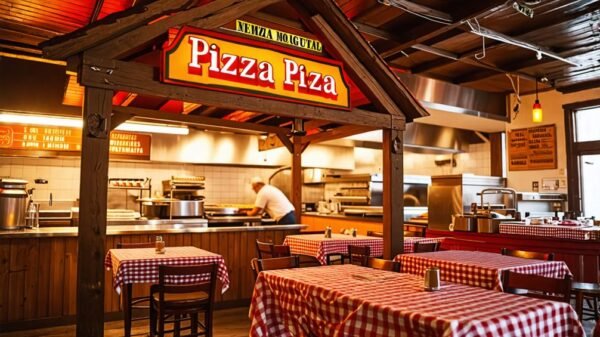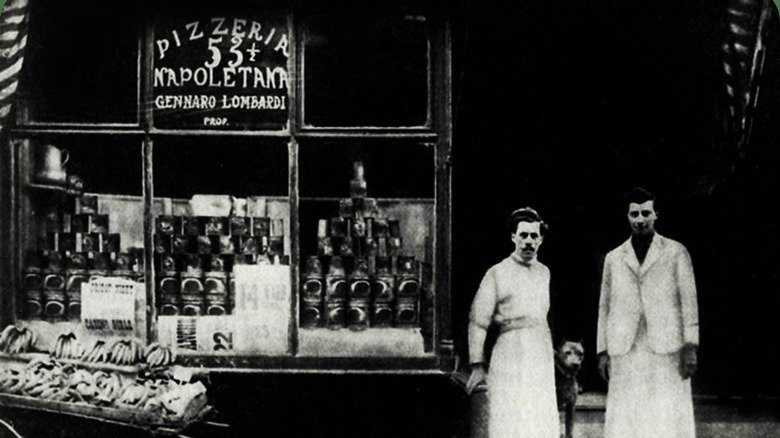The Rich Legacy of Lombardi’s: A Slice of History
Pizza has become synonymous with American dining, yet its roots trace back to Italy. Among the many pizzerias scattered across the United States, one stands out as a legendary pioneer—the first pizzeria, Lombardi’s, established in 1905. Located in New York City’s Little Italy, this small eatery transformed how Americans viewed pizza. Let’s explore the fascinating history of Lombardi’s and discover what dining at the original pizzeria was like.
From Grocery Store to Pizzeria
Before Lombardi’s became synonymous with pizza, it started as a modest grocery store run by Gennaro Lombardi in 1897. The bustling neighborhood of Little Italy, rich with Italian immigrants, became the backdrop for Lombardi’s venture. Customers primarily consisted of hardworking factory employees, and the shop catered to their needs with various goods, including tomato pies. These tomato pies paved the way for Lombardi to shift toward pizza when a suggestion from a clerk, Anthony Totonno Pero, inspired him to bake the delicious flatbreads more commonly known.
In just a few years, Lombardi’s underwent a transformation. The grocery store counter sprouted a coal-fired oven, and Lombardi began creating pizzas with the new recipe each day, adhering to the traditions of his native Naples while infusing elements of New York’s culinary style.
Authentic Recipes and Techniques
Remarkably, Lombardi’s pizzas adhered closely to classic Neapolitan traditions, distinguished by their unique cooking method. Traditional pizzas from Italy were baked in wood-fired ovens, but Lombardi’s opted for coal—which could reach fiery temperatures of 900°F. This technique produced a crispy crust with an exceptional flavor, setting the bar for pizzas nationwide.
Ingredients such as San Marzano tomatoes, mozzarella cheese, and fresh basil enhanced the simple yet delectable pizza toppings. With dedication to quality and expertise in the art of pizza-making, Lombardi’s became a staple for locals craving authentic Italian flavors.
A Takeout Tradition Begins
During its early years, Lombardi’s didn’t offer dine-in options. Instead, the focus was on takeout, with customers flocking to the counter for freshly baked pizzas. Many patrons had limited means to cook their meals at home, which solidified the pizzeria’s role as a vital food source. The first menu boasted simple choices, such as cheese and tomato pizzas or sardine toppings—yet it managed to serve and sustain the community around it.
As the years rolled on and the dining landscape changed, Lombardi’s began to offer seating. The tables were a welcome addition for those wanting to enjoy a slice in good company—culminating in a delicious blend of communal spirit and culinary history.
Celebrating a Legacy
Today, Lombardi’s is not just a dining venue; it’s a cultural icon. After closing in 1984, the pizzeria reopened in 1994, just around the corner from its original location, continuing its mission of serving authentic coal-fired pizzas. This reopening was made possible by the grandson of Gennaro Lombardi, marking a revival of a cherished tradition.
Its fame has attracted a plethora of celebrity guests over the years, reflecting Lombardi’s significant place in New York’s vibrant food scene. From actors like Jack Nicholson to sports figures and musicians, the pizzeria has hosted an array of patrons drawn by its world-famous pizzas.
Lombardi’s: An Indispensable Part of New York History
As you stroll through the streets of Little Italy today, Lombardi’s greets you with an inviting warmth and historical charm. The signature coal oven prominently displayed serves as a testament to the original recipe that continues to delight patrons. Exploring the walls adorned with old photographs and memorabilia, visitors can appreciate the enduring legacy of Italy’s beloved dish in America.
The story of Lombardi’s epitomizes the Italian immigrant experience in the United States, perfectly capturing the passion for food and community. Generations later, this pizzeria continues to serve as a must-visit destination, reminding us of the rich history that surrounds each slice of pizza enjoyed today.
With every bite, you not only taste tradition but also savor the story of a pizzeria that has become a beloved landmark celebrating the iconic flavors of Neapolitan cuisine, still thriving amidst changing times.






































